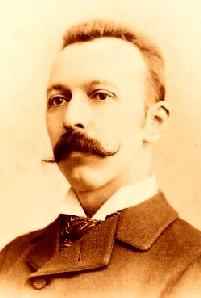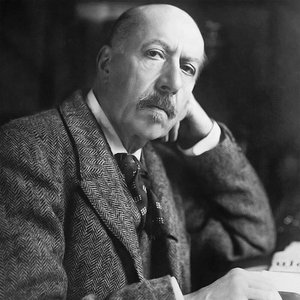Early Life and Musical Education
Léon Boëllmann, born on September 25, 1862, in Ensisheim, Alsace, emerged as one of the most promising composers of the French Romantic era. His musical journey began at a young age when his exceptional talent caught the attention of his uncle, Eugène Gigout, a renowned organist and composer. Recognizing the boy’s potential, Gigout arranged for Boëllmann to study at the prestigious École de Musique Classique et Religieuse in Paris, founded by Louis Niedermeyer.
At the tender age of nine, Boëllmann left his hometown to pursue his musical education in the vibrant cultural hub of Paris. The school, known for its emphasis on Renaissance polyphony and Gregorian chant, provided the young musician with a solid foundation in classical music traditions. Under the guidance of skilled instructors, including his uncle Gigout, Boëllmann’s innate musical abilities flourished, setting the stage for his future success.
Rise to Prominence
Boëllmann’s talent did not go unnoticed during his time at the École Niedermeyer. He consistently excelled in his studies, earning numerous awards and accolades. His exceptional skills as an organist and composer soon caught the attention of the Parisian musical community. In 1881, at the age of 19, Boëllmann secured a prestigious position as sub-organist at the Church of St. Vincent de Paul in Paris, where he worked alongside his mentor and uncle, Eugène Gigout.
This appointment marked the beginning of a prolific period in Boëllmann’s career. He quickly gained a reputation as a brilliant organist, known for his masterful improvisations and interpretations of both classical and contemporary works. His performances at St. Vincent de Paul drew admirers from across Paris, establishing him as one of the leading organists of his generation.
Compositional Style and Major Works
Boëllmann’s compositional style was deeply rooted in the French Romantic tradition, characterized by its emphasis on melody, harmonic richness, and emotional expressiveness. However, he also incorporated elements of Renaissance polyphony and Gregorian chant, reflecting his education at the École Niedermeyer. This unique blend of influences resulted in a distinctive musical voice that set Boëllmann apart from his contemporaries.
Organ Music
While Boëllmann composed for various instruments and ensembles, it is his organ music that forms the cornerstone of his legacy. His most famous work, the “Suite Gothique” (Op. 25), completed in 1895, remains a staple of the organ repertoire to this day. The suite’s four movements, particularly the dramatic “Toccata” finale, showcase Boëllmann’s mastery of the instrument and his ability to create music of both technical brilliance and emotional depth.
Other notable organ works include:
- “Douze Pièces” (Op. 16)
- “Deuxième Suite” (Op. 27)
- “Fantaisie Dialoguée” (Op. 35)
These compositions demonstrate Boëllmann’s innovative approach to organ writing, combining traditional forms with a modern sensibility.
Chamber Music
Although less well-known than his organ works, Boëllmann’s chamber music reveals his versatility as a composer. His Piano Quartet in F minor (Op. 10) is particularly noteworthy for its rich harmonies and intricate interplay between instruments. Other significant chamber works include:
- Cello Sonata in A minor (Op. 40)
- Piano Trio in G major (Op. 19)
- Various pieces for piano and violin
These compositions showcase Boëllmann’s ability to craft intimate, expressive music for smaller ensembles.
Orchestral and Vocal Works
Boëllmann’s output also included orchestral and vocal compositions, further demonstrating his range as a composer. His Symphony in F major, though less frequently performed than his organ works, is a testament to his skill in handling larger musical forms. In the realm of vocal music, Boëllmann composed numerous motets and masses for liturgical use, as well as secular songs that display his gift for melody and text setting.
Legacy and Influence
Tragically, Léon Boëllmann’s promising career was cut short by his untimely death on October 11, 1897, at the age of 35. Despite his brief life, Boëllmann left an indelible mark on the world of French Romantic music. His compositions, particularly his organ works, continue to be performed and recorded by musicians around the globe.
Boëllmann’s influence can be seen in the work of subsequent generations of French composers, particularly in the realm of organ music. His innovative use of the instrument’s capabilities and his unique harmonic language helped pave the way for the great French organ composers of the 20th century, such as Marcel Dupré and Olivier Messiaen.
In recent years, there has been a resurgence of interest in Boëllmann’s music. Musicologists and performers have rediscovered many of his lesser-known works, leading to new recordings and performances. This renewed attention has helped to solidify Boëllmann’s place in the pantheon of French Romantic composers.
Personal Life and Character
Beyond his musical achievements, Léon Boëllmann was known for his warm personality and dedication to his craft. In 1885, he married Marie-Louise Gigout, the niece of his mentor Eugène Gigout, further strengthening his ties to the Parisian musical community. Despite his growing fame, Boëllmann remained committed to his role as organist at St. Vincent de Paul, where he continued to inspire congregants and music lovers alike with his performances.
Contemporaries described Boëllmann as a modest and hardworking individual, devoted to his family and his art. His untimely death was mourned not only by the musical community but also by the many friends and admirers he had made during his short life.
Conclusion
Léon Boëllmann’s life and work serve as a poignant reminder of the impact a talented individual can have, even in a brief span of time. His contributions to the organ repertoire, in particular, ensure that his name will continue to be celebrated by musicians and music lovers for generations to come. As we continue to explore and appreciate Boëllmann’s musical legacy, we honor the memory of a composer whose passion and creativity enriched the world of French Romantic music immeasurably.
The rediscovery and ongoing performance of Boëllmann’s works in the 21st century testify to the timeless quality of his music. His ability to blend traditional forms with innovative harmonies and expressive melodies continues to captivate audiences, ensuring that the name Léon Boëllmann remains synonymous with the best of French Romantic music.


